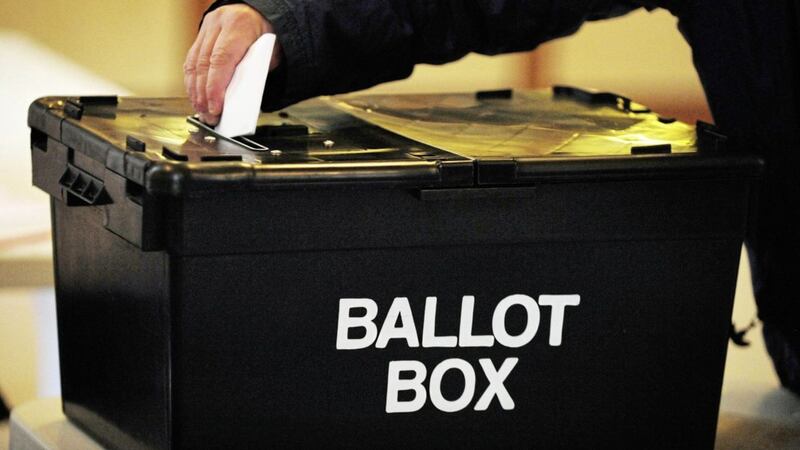IAN Paisley will toe the line on any DUP deal to restore Stormont, so he is badly in need of a distraction.
In the Commons on Monday, during a debate on the conflict in Gaza, the DUP MP railed against “the ever-increasing extremism and the anti-Nato and antisemitic attitudes emanating now from the Republic of Ireland”. He singled out Taoiseach Leo Varadkar for “unbelievable” language and asked a foreign office minister to “have a word with that country about its attitude”.
Less than two hours later, Fine Gael’s ‘Northern Ireland engagement delegation’, led by TD Fergus O’Dowd, posted a picture of its members meeting Paisley in Westminster. There were smiles all round.
Read more:
- The DUP never wanted to share power with nationalists – Brian Feeney
- DUP's strategic blunders reminiscent of 1920s Sinn Féin – Cormac Moore
- Deirdre Heenan: Rumours of a DUP split have been greatly exaggerated
**
Ian Paisley’s deflection tactics are positively cosy compared to Sinn Fein’s cynical manoeuvring around immigration issues in the Republic.
Although the party is unlikely to adopt a hard-line stance against immigration, it is moving swiftly towards law-and-order populism to try and outflank political rivals on the right. This will have implications in Northern Ireland, where many of Sinn Féin’s constituents would also appreciate more robust policing but have been confounded by the somewhat tricky republican politics that proposition represents.
It will be a rich historic irony if Sinn Féin fights Fine Gael in an election by promising the shadow of a truncheon.
**
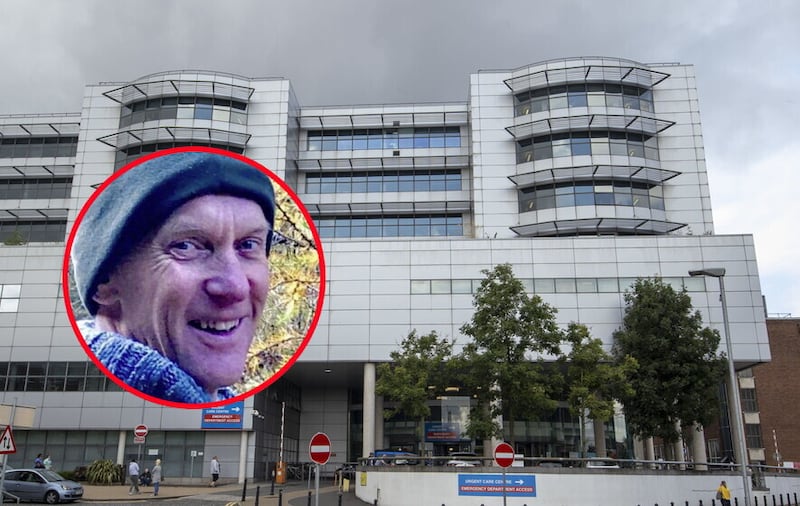
The PSNI has begun an investigation into former consultant neurologist Michael Watt, whose practice at the Royal Victoria Hospital led to the largest patient recall in Northern Ireland’s history. Although concerns were first raised by colleagues in 2006, he was not suspended until 2017 and an inquiry only concluded last year.
Patients have been campaigning for six years for a police investigation and 20 have so far contacted the PSNI.
It is understandable that police are reluctant to become involved in medical cases, given their complexity, specialisation and enormous demand on resources.
Yet NHS patients and staff are expected to depend on internal systems and official inquiries that are similarly bamboozled and overloaded, due to hostility to whistleblowers and professionals circling the wagons. If an inquiry is eventually secured, it rarely delivers change or justice. The best chance of that is police action afterwards.
Perhaps dialling 999 should be considered an earlier option, with the PSNI resourced to cope. The vast sums spent on inquiries could employ large teams of specialist officers on a permanent basis.
**
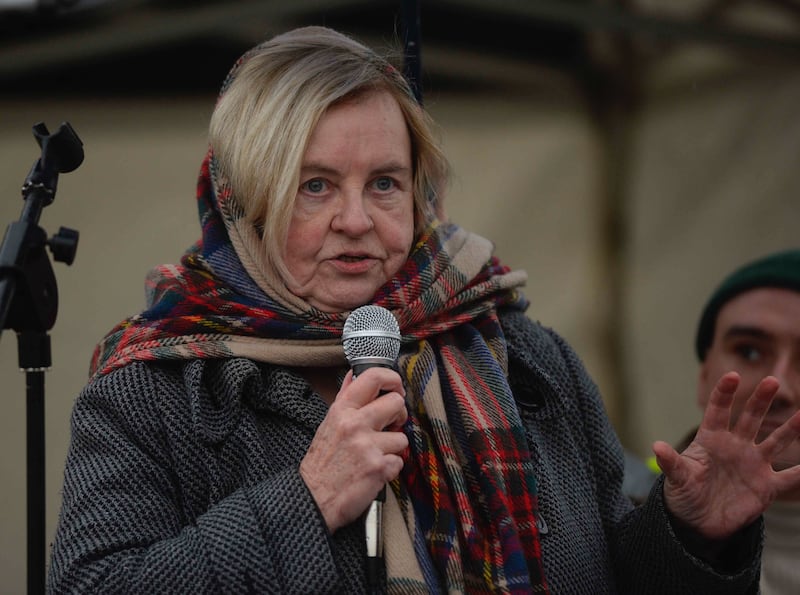
Campaigners have held a rally at Toome over the pollution of Lough Neagh, calling for a management strategy and an independent environmental protection agency for Northern Ireland. However, there have been strategies before – they turned into buck passing exercises between the many public bodies involved. Northern Ireland also has an independent environmental protection office, just about, following a compromise between the DUP and other parties in 2021. The office is too small and underpowered for the task but that is not the fundamental problem.
Strategies and agencies will make no difference while polluters are considered untouchable by politicians, officials and even regulators. In April, a farmer in England was jailed for 12 months for stripping trees from a riverbank and letting pollution enter the water.
That needs to happen here and the necessary laws and mechanisms exist. Someone in charge just needs to show some gumption.
Read more:
- Irish government could help fund Lough Neagh clean-up
- Lough Neagh: Tumultuous, tragic history, death, destruction, murder and centuries of controversy
- Vast stretch of Lough Neagh cloaked in apparent toxic algae as locals insist it is the 'worst ever seen'
**
The High Court in Belfast has ruled on an interesting case involving an Eritrean asylum seeker, who was transferred from Northern Ireland to Scotland by the Home Office due to an accommodation shortage.
His lawyers claimed this breached the Windsor Framework, which guarantees no diminution of rights, safeguards and equality of opportunity protected by the Good Friday Agreement. They threw the kitchen sink at it, even arguing an asylum seeker (who is not allowed to work) suffers economically from leaving the EU customs union (although Northern Ireland is not quite in the customs union).
The court found these were legitimate arguments in theory. But it still threw the case out on all grounds because there is no difference in rights protections between Britain and Northern Ireland in practice. This significantly clarifies the new legal world to which we have all been transferred.
**
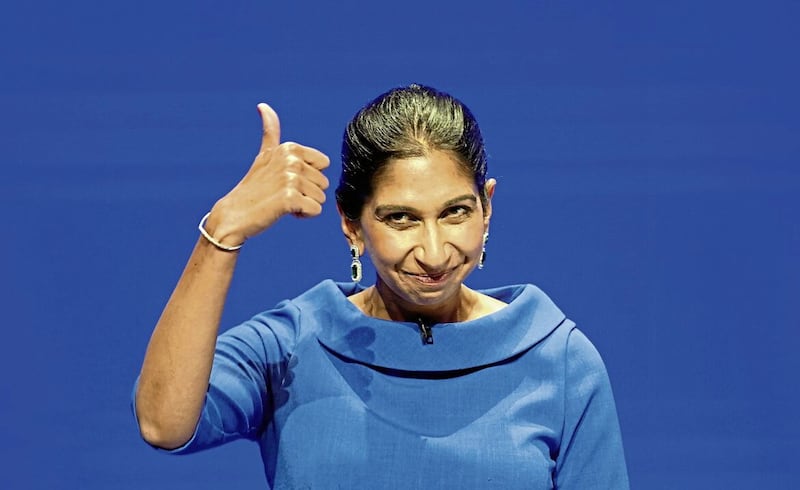
Suella Braverman, the former home secretary, has revealed details on the immigration deal she claims Prime Minister Rishi Sunak agreed with her last year. It includes prioritising the elite Russell group of universities when allocating student visas.
If such a policy were to be implemented it would have a particularly striking impact on Northern Ireland. Queen’s University Belfast is in the Russell group, Ulster University is not, and both have become highly reliant on overseas student fees.
**
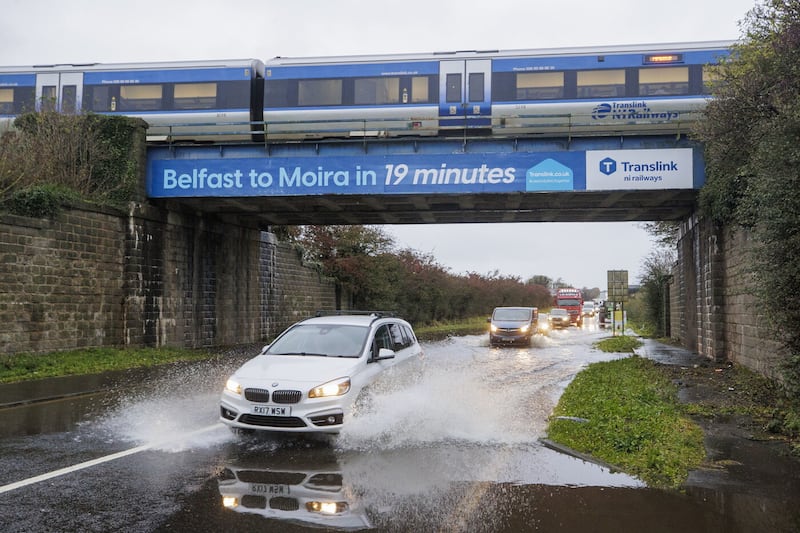
Re-building the railway line between Portadown and Armagh is “feasible”, according to a study commissioned by Armagh, Banbridge and Craigavon council and jointly funded by the Department for Infrastructure.
DUP lord mayor Margaret Tinsley says the council is now “keen to work” with the department and Translink to “further develop the proposals”.
What might this entail, beyond moral support? Derry and Strabane council gives 5 per cent of its budget to City of Derry Airport, so there is a precedent for tapping ratepayers to subsidise prestige transport projects. The legal circumstances are different, as the airport is owned by the council, while railways belong to a Stormont-owned company. But the law was changed in 2015 when the super-councils were established, giving them a general power to contribute to functions outside their remit.
They have used this for social housing and economic regeneration, which a railway would fall under. Would the council help fund the line, or is it all talk?
**
Last month, the Department for Infrastructure raised maximum taxi fares by 9.5 per cent in the daytime and 19.5 per cent at all other times. This exceeded inflation in order to improve availability, particularly at evenings and weekends. But Value Cabs has already announced it will snaffle up much of the rise with increased depot fees. Fonacab, the only other big taxi firm in Belfast, can be expected to do likewise.
More competition, rather than more money, might be required to shake up this sclerotic industry. A decade ago, Stormont decided to tolerate AirBnB but effectively ban Uber. It should have tried that the other way around.


